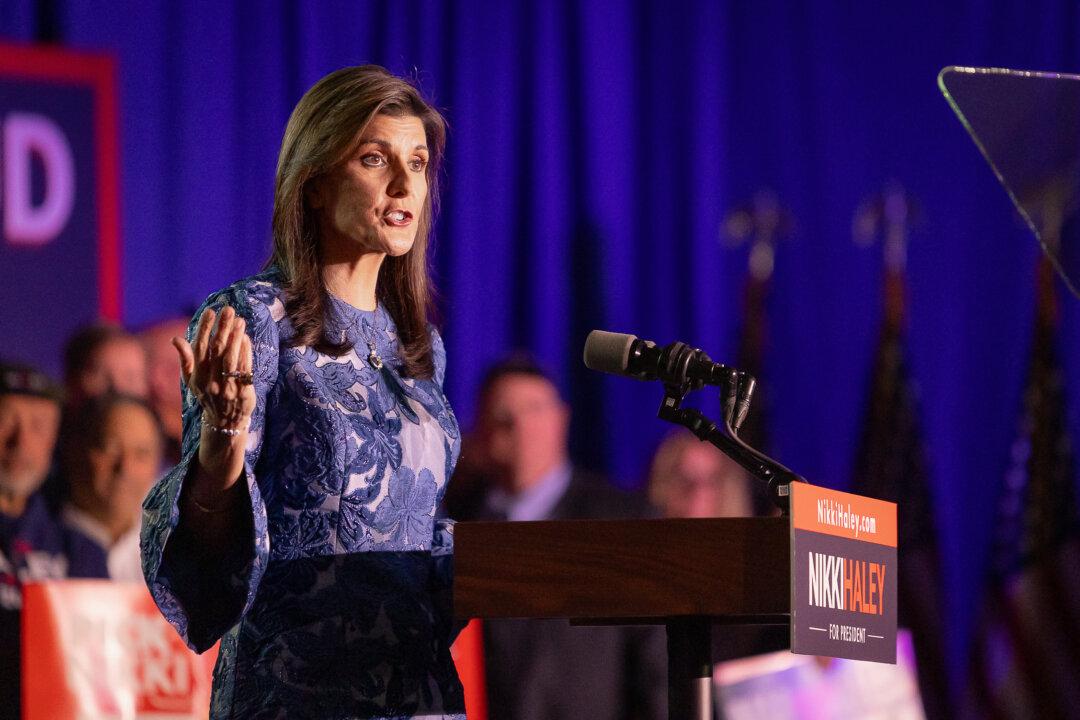CONCORD, N.H.—Nikki Haley addressed passionate supporters, appearing happy to have placed second in New Hampshire, saying she is staying in the race.
As of 8:45 p.m. ET with 28 percent of the votes counted, Haley had 45.6 percent of the vote to former President Donald Trump’s 53.4 percent.





